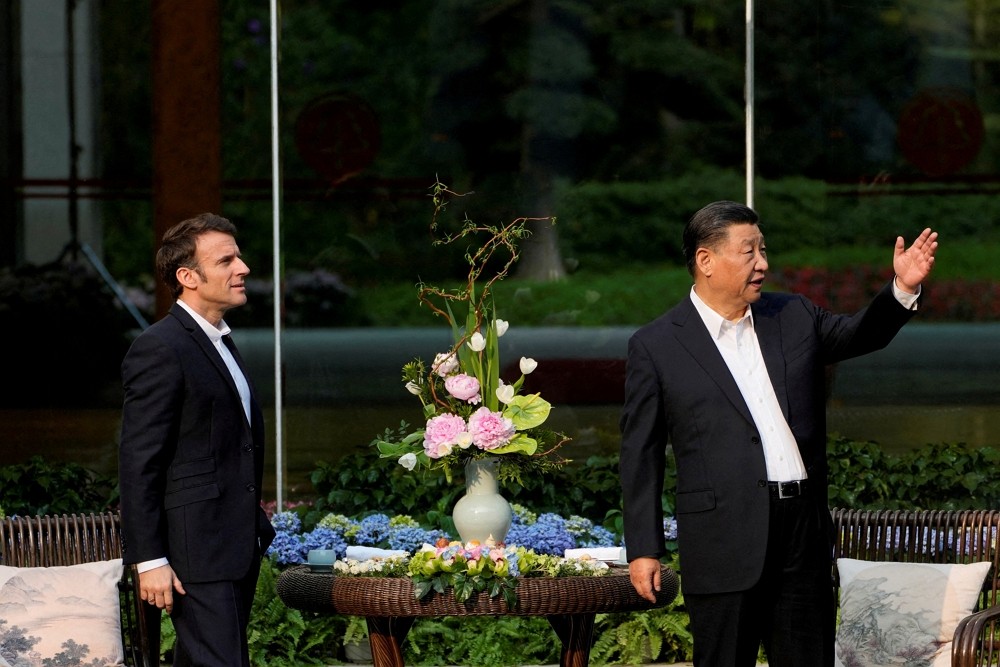On January 13th 2024, Taiwan will elect its next president.
But what will this mean for Australia?
Douglas Hsu is the Taiwanese Chief Representative to Australia – he says the relationship between Australia and Taiwan remains an important one.
“I think Taiwan and Australia are closer than everyone can imagine. We are in the Indo-Pacific region together, and I think Taiwan is the 5th largest trading partner of Australia, and also I think that after joining the AUKUS, Australia plays a more pro-active role in the region and I think Taiwan is an important stakeholder in the region.”
The incumbent President, Ms Tsai Ing-wen, has already been elected two times and is not re-eligible because of term limits.
Her vice-president Lai Ching-te has constantly topped the polls to succeed her as the candidate of the Democratic Progressive, or DPP party.
Since Taiwan established democracy in the 1990s, two parties have been dominant – the centre-left DPP and the centre-right Kuomintang, or KMT party.
Richard McGregor is the Lowy Institute Senior Fellow for East Asia.
He spoke at a recent conference in Sydney (7 December) on the implications of the Taiwanese election for Australia.
“Presidential elections represents, I think, the fundamental break between China and Taiwan. So every election is important, and this one particularly because if the DPP wins, and that is essentially the anti-China party.”
Despite widespread support for their opposition to China, the DPP is not guaranteed to win against the KMT.
Richard McGregor says many Taiwanese voters may be interested in changing parties for purely domestic reasons.
“Local issues in Taiwan are important in this election, not everybody is focused on China. Not only housing prices by the way, but egg prices are a big issue in Taiwanese politics recently.”
Fatigue towards a party that has been in power for eight years may also work against the DPP despite widespread public support for their foreign policy.
This leaves space for the KMT and even an emerging third candidate, former New Taipei mayor Ko Wen-je.
As for Australia, Taiwan is primarily seen in relation with China.
Mr McGregor says a win for KMT could create a temporary ease in regional tensions.
“If the Kuomintang wins, who knows what’s going to happen, I think there would be in short term a relatively more peaceful cross-straits relationship. From Australia’s interests that’s a good thing.”
But he says this might be short lived.
“China is determined to bring Taiwan under its control. Taiwan has no interest in that. So if there is a short-term of easing in tensions and increase in dialogue in the even of a Kuomintang win, that’s short term.”
The United States Studies Centre undertakes an annual opinion survey on a range of foreign policy and security questions related to the Indo-Pacific.
This year’s survey revealed concerns about tensions in the region remained high, particularly about any potential conflict between Australia and China.
Dr Michael Green is the CEO of the Centre.
“When we asked in our study centre in Sydney, in our poll, what the Australian people would do if Taiwan were attacked and the US decided to defend Taiwan, and 50 percent said we should support Taiwan, support the US, only 15 percent said don’t support.”
Mr McGregor believes Australians anecdotally at least are interested in what happens politically in Taiwan.
“What do Australians think of Taiwan? I was thinking about this the other day when I went to the dentist and I was about to go to Taiwan the next day. And I told my dentist this and he said ‘oh just before it’s taken over by China!’ And I know that’s a single anecdote but I think it says something. I think among many Australians they think it’s inevitable, and I think that’s exactly what Beijing would like you to think. That resistance if futile, China would win, why resisting?”



